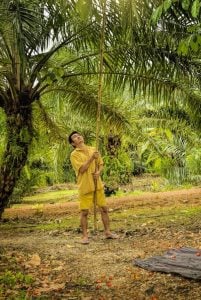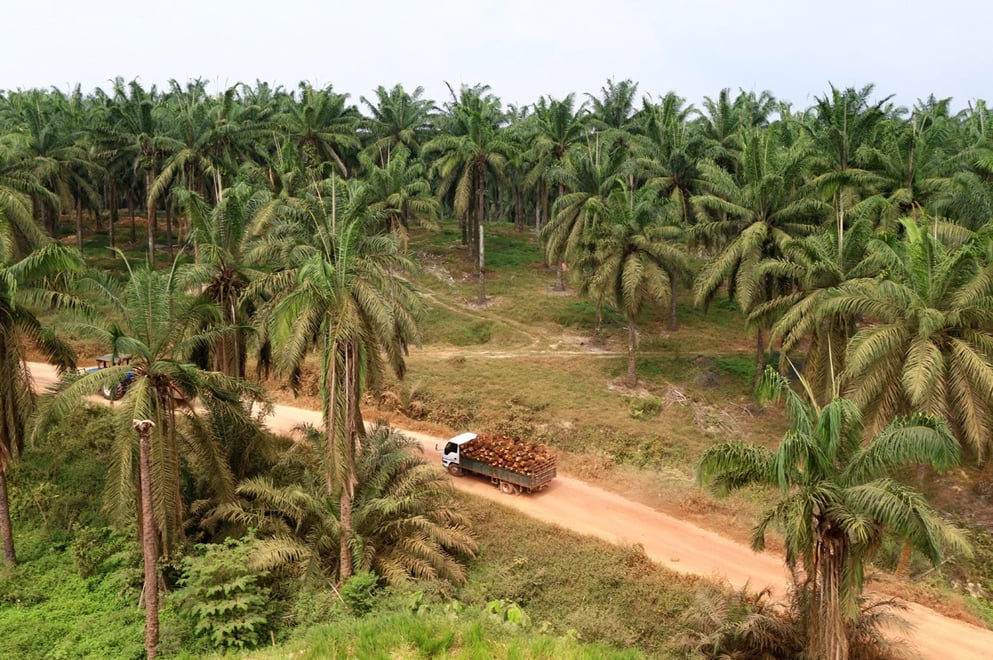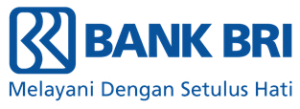NAM’s Responsible Investments team engages with Bank Rakyat Indonesia
Key highlights
- Deforestation is a global issue threatening our rainforests
- In Indonesia, palm oil plantations are one of the biggest culprits of deforestation
- Concerned about ESG risks associated with deforestation, NAM’s RI Team has engaged with Bank Rakyat Indonesia (BRI), a local financier of palm oil producers
- BRI requires sustainability certifications for palm oil plantation loans but further measures are needed
- NAM’s RI team has recommended improvements in risk areas related to palm oil exposure, and plans to follow up in 2020
Every two minutes, a rainforest the size of a football field is cut down in Indonesia to make room for palm oil plantations. Six million hectares of primary forest were lost in Indonesia between 2000-2012¹.
Palm oil exists in more than 50% of the goods people buy: shampoo, biscuits, ice cream, cosmetics, soap, margarine, chocolate — the list goes on. It’s difficult to find an alternative to palm oil. The crop has a much higher yield per hectare than rapeseed or soybean and requires less fertiliser and pesticides than either.
Nearly half of the global supply of palm oil comes from Indonesia and the crops’ plantations cover 10.5 million hectares of land in the country. Finding a solution to Indonesia’s predicament of a growing population and diminishing resources is imperative in order to preserve the last remaining rain forests there.
For Nordea Asset Management’s (NAM) Responsible Investments (RI) team, the issue is front and centre. Palm oil production is associated with several ESG risks, such as indigenous peoples’ rights, labour rights, deforestation and harm to endangered species. We have increased our participation in PRI (Principles for Responsible Investment) collaborative engagement² projects and expanded direct engagement with our holdings on the issue. In 2019, we added palm oil related expectations to our Responsible Investment Policy:
“We expect companies across the palm oil value chain to make sufficient efforts towards ensuring traceability, creating relevant policies aligned with a No Deforestation, No Peat, No Exploitation (NDPE) policy and Roundtable on Sustainable Palm Oil (RSPO) standards as well as maximizing the use of Certified Sustainable Palm Oil.”
-Nordea Asset Management Responsible Investment Policy, 2019.

In 2017, members of NAM’s RI team visited Indonesia to investigate the palm oil industry — they will return again early in 2020. While there, they met with some of the world’s major palm oil producers, NGO’s, and small-holder farmers in offices and palm oil plantations. The team came away with a deeper understanding of the complexity of ESG (Environment, Social and Governance) risks facing the palm oil industry, e.g. deforestation, sustainable farming and workers’ wages. In 2019, the team followed up with Bank Rakyat Indonesia (BRI) to investigate and address its exposure to the industry.
Due to the bank’s strong focus on microfinance, portfolio managers of Nordea’s Emerging Stars Equity Strategy have chosen to include it in their stock selections. At the same time, the RI team wanted to get a clearer view of how the bank is connected to the palm oil industry. As the world’s largest producer of the commodity, Indonesia’s economy is tied to palm oil production. Hence, BRI is exposed to the financing of palm oil production: around 5-6% of its loan book is connected to the practice.
BRI has acknowledged the ESG risks it faces related to palm oil financing, and in 2018 it began implementing ESG risk management for its palm oil plantation loans. The bank now requires palm oil plantation clients to have an Indonesian Sustainable Palm Oil Standard (ISPO) or a Roundtable on Sustainable Palm Oil (RSPO) certification.
There are several different certifications related to sustainable palm oil production, however the two most relevant for BRI are the ISPO and the RSPO.
BRI’s required certifications
- The ISPO is designed to ensure that all Indonesian palm oil producers conform to higher agricultural standards. It is based on Indonesian legislation and addresses issues such as plantation management, environmental management, workers’ rights and community relations. The ISPO has been mandatory for larger Indonesian palm oil producers since 2014 and should be mandatory for smaller palm oil producers by 2022.
- The RSPO is the main certification standard within the palm oil industry. Currently 20% of the global palm oil producers are RSPO certified. The RSPO requires producers to live up to national legislation, but goes further on its requirements related to transparency, best practise within environmental responsible management, biodiversity, community relations (RSPO endorses the Free, Prior and Informed Consent Guide), new plantations and third-party verification. The requirements in the RSPO are more comprehensive than the ISPO. One drawback, however, is that RSPO certification does not mean per se “deforestation-free” because the criteria are not stringent enough.
Certification is important because it requires independent verification. One of the main benefits of RSPO compared to ISPO is its policy on production in high conservation val- ue (HCV) areas. The ISPO relies on Indonesian regulations, which are more lenient, for high conservation value (HCV) areas — since 2016, the country has only implemented a temporary ban on HCV forest clearing permits.
About 17% of global palm oil production is Certified Sus- tainable Palm Oil (CSPO). But Nordea’s RI team found that a number of different investigations by NGOs and journalists revealed non-compliance with RSPO guidelines at CSPO-certified plantations. The challenge is to push for more stringent requirements and engage with the worst performers/laggards at the same time.
“BRI has acknowledged the ESG risks it faces related to palm oil financing, and in 2018 it began implementing ESG risk management for its palm oil plantation loans.”

Truck transporting palm oil fruits in palm oil plantation
Existing BRI clients without certification have been given a two-year grace period to obtain one, so NAM’s RI team will follow up on this point in 2020. BRI also has a policy of not lending to any corporate clients that do not have a Blue PROPER rating. A Blue PROPER rating is the third best environmental rating given to manufacturing companies by the Indonesian Ministry of Environment.
In 2018, BRI provided financing to 26 clients with ISPO (14) or RSPO (12) certified palm oil companies, with a total financing value of USD1.2 bn. Currently, BRI still has 26 borrowers in the process of obtaining an ISPO certification. These figures show a decrease of 21 palm oil clients with a value of USD 1.6 bn from the previous year.
In addition to requiring certifications, BRI has collaborated with the World Wildlife Fund (WWF) in Indonesia to organise in-house training of credit officers in its headquarters on sustainable palm oil production.
While the measures BRI has taken with certifications and training are encouraging, NAM’s RI team has made the following recommendations regarding improvements in risk areas connected to its palm oil exposure:
- The bank should expand the palm oil ESG risk training to branch credit
- During the underwriting due diligence, the bank should assess the clients’ HCV risk exposure through assessing their geographic locations and proximity to HCV
- The bank should initiate a program to educate clients in the micro borrower segment about environmental conservation and
- As Indonesia is exposed to lack of regulation enforcement (the ISPO relies on enforcement of local regulation), the bank should ensure that their loan contracts specify that non-adherence to Indonesian regulation can cancel a contract.
Currently, the Indonesian state still owns a majority of BRI and, although the legal requirement for ISPO certification is a step in the right direction, they need to raise the level. The bank has given their borrowers two years to become compliant, so we expect them to begin hitting these goals next year. Our team will follow up early next year to track the bank’s progress in this and other related areas.

Bank Rakyat Indonesia (BRI) is a leading Indonesian commercial bank and one of the country’s largest lenders by assets. It specialises in banking services for micro, small and medium enterprises (MSMEs).
Founded in 1896, BRI is the oldest bank in Indonesia and was state-owned until 2003 when it listed 30 percent of its shares on the Indonesia Stock Exchange (IDX). It is currently one of the largest Indonesian companies in terms of market capitalisation (USD37.19B as of 07 Jan 2020).
Bank Rakyat Indonesia investment caseThe Portfolio Managers have chosen to invest in BRI because it operates one of the most successful microfinancing franchises in the world, providing banking services to low-income individuals or groups who otherwise would have no other access to financial services. Bank Rakyat plays an important role in Indonesia driving financial inclusion in rural areas where other banks don’t want to go.
The bank has used its expertise to drive growth in the microfinance sector while simultaneously increasing the financial inclusion of lower socio-economic groups in Indonesian society. BRI is majority owned by the Indonesian government and is highly involved in the country’s efforts to increase financial literacy, financial inclusion, and social and economic resilience.
In 2018, 73.1% of BRI loan book was connected to microfinancing (34.1%), consumers (16.3%) and small commercial enterprises (22.7%). The percentages of nonperforming loans for these segments are respectively 1.01%, 1.03% and 3.14%. As the numbers indicate, BRI has achieved a good process of due diligence in loan approval.
BRI’s commitment to microfinance directly supports the UN’s first Sustainable Development Goal: end poverty in all its forms everywhere. The bank’s commitment to take measures to improve palm oil plantation practices is a good step towards supporting other SDGs, as well.
What is Nordea doing about palm oil production?
Nordea Asset Management Responsible Investment Policy
We are committed to international conventions, norms and the UN PRI (principles for responsible investment).
Norm-based screening
We screen for companies violating international norms, which may lead to engagement and, in cases of serious violations and lack of improvement, to exclusion from our investment universe.
ESG integration
We identify material ESG risks and opportunities in our investments and integrate the information into our investment process.
Company Engagements
We have also been in dialogue with other banks exposed to the palm oil sector, as we have been monitoring the performance of the sector in collaboration with NGOs.
Additionally, we engage in discussions with some of the largest palm oil buyers, e.g. we have conducted dialogues with Nestle and AAK, to name a few.
Collaborative engagements
In 2016, we joined PRI collaborative engagement on labour practices in agricultural supply chains.
Nordea is a member of the Carbon Disclosure Project (CDP), which runs the global disclosure system for investors, companies,cities, states and regions to manage their environmental impacts.
Nordea is a member of the Institutional Investor Group on Climate Change.
We are part of PRI Investor Working Group on Sustainable Palm Oil, working with companies across the palm oil value chain,including producers, refiners, traders, consumer goods manufacturers, retailers and banks, to adopt and implement a publicly available No Deforestation, No Peat and No Exploitation (NDPE) policy.
¹Margono, Belinda, “Primary forest cover loss in Indonesia over 2000-2012”,Nature Climate Change, 29 June 2017.